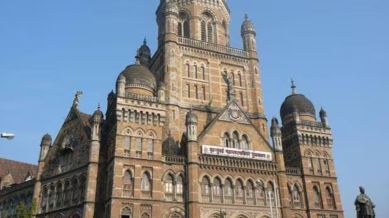Stay updated with the latest - Click here to follow us on Instagram
BMC begins taxing commercial units in Mumbai slums, issues property tax bills worth Rs 7.39 crore
The BMC aims to generate around Rs 700 crore from this new tax, as more than 30 per cent of slum properties are commercial units.

The Brihanmumbai Municipal Corporation (BMC) has begun levying property tax on commercial establishments located within Mumbai’s slum areas, a move expected to boost the civic body’s revenue significantly. In the first four months of the ongoing financial year, the BMC issued property tax bills amounting to Rs 7.39 crore to over 5,000 such establishments. This marks the first time in the civic body’s history that property tax has been imposed on commercial units operating out of slum pockets. The taxed entities include shops, godowns, warehouses, storage facilities, and garages.
To strengthen the BMC’s financial capacity, Municipal Commissioner and state-appointed Administrator Bhushan Gagrani had earlier announced in February that commercial properties in slum areas would be brought under the property tax net starting FY 2024-25. Until now, these establishments were exempt from property tax and were only subject to commercial charges such as license fees.
monthly limit of free stories.
with an Express account.
According to civic data, 5,245 such properties have been identified so far, and tax notices have been served to 5,135 of them. Of these, 1,120, roughly 20 per cent, have responded by submitting ownership details. The civic body expects to collect Rs 7.39 crore from these 5,000 properties.
“Our initial projection is that we will be able to generate at least Rs 700 crore by imposing property tax on these units. More than 30 per cent of the properties that are present in the slum areas are commercial units like shops and there is a need to bring them under the tax net so that there is uniformity in taxation,” an official told The Indian Express.
A breakdown of the data reveals that the eastern suburbs have the highest number of identified properties (2,768), followed by 1,605 in the western suburbs and 872 in the island city. Civic officials said the survey is ongoing and expected to be completed by the end of November.
“After the first two months of the financial year, we had to slow down the survey due to the monsoon, following which it resumed again. After the process is over, we will start issuing tax receipts starting from December, and by the end of the financial year, the property owners will have to pay the bills,” the official added.
According to the Mumbai Municipal Corporation Act, 1888, property tax can be levied on land, buildings, both pucca (concrete) and kutcha (raw), and other constructions within the BMC’s jurisdiction.
The civic body has clarified that taxing these commercial structures does not legalise them. A BMC official said that under Section 152(A) of the Act, the imposition of tax or penalty on an illegally constructed or reconstructed building does not confer legal status.
“If any building or part of a building has been constructed or reconstructed illegally and a tax or penalty has been levied on it by the administration, it does not mean that the said construction or reconstruction is legalised,” the official said.